LGBT in Russia: smashing stereotypes and creating a queer future
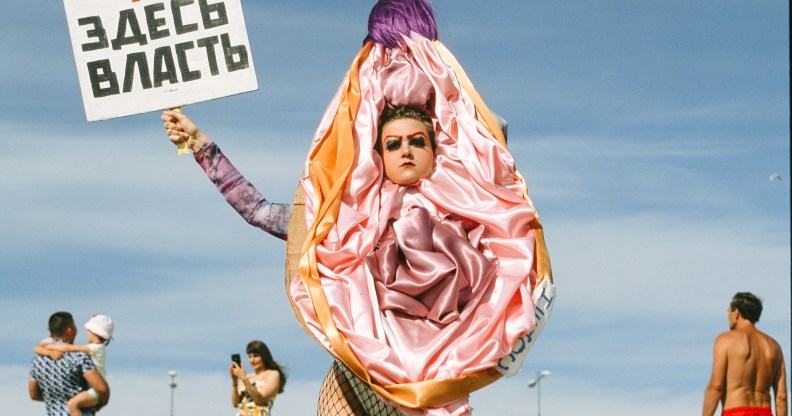
Nedos, a “queer communist empress”. (Artem Emelianov)
For Russia’s LGBT community, homophobia and violence are part of day-to-day reality.
Some cases, like the murder of activist Yelena Grigoryeva last week or torture in Chechnya, have made international headlines and caused global outrage, while others go tragically unreported.
But there is more to LGBT+ life in Russia than just oppression. In fact, a new generation of queer Russians is rising, and they are keen to create a better future for the community.
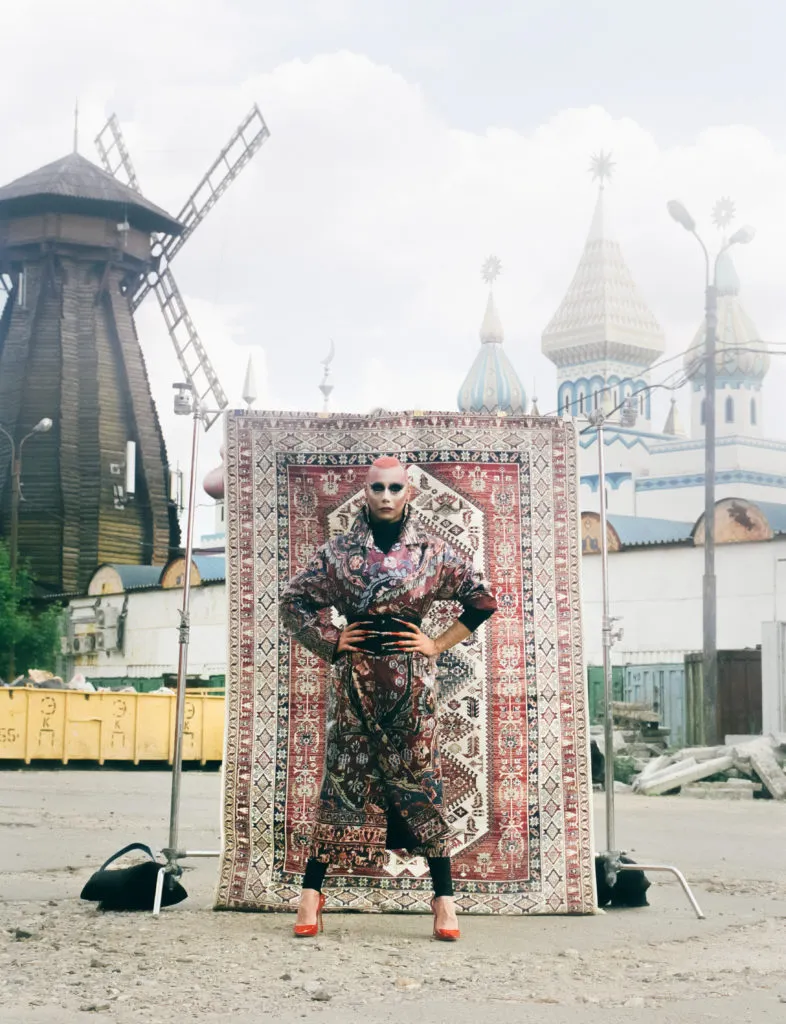
Drag queen Lorina Rey in Moscow. (Artem Emelianov)
LGBT Russia: raves, drag parties and role models
The queer Russian underground already exists: there are raves, drag parties, online publications and support networks and, most importantly, a new crop of outspoken role models for whom queerness is an integral part of their identity.
For this photography project, London-based publication The Calvert Journal collaborated with Moscow-based queer culture magazine O-zine to showcase the queer creatives in Moscow and St Petersburg who represent this new wave.
“We wanted to create a publication in which queer youth could express themselves and help others in their community,” says journalist Dmitry Kozachenko, who started O-zine with queer sex blogger Sasha Kazantseva in 2018.
The publication is completely self-funded, and under Russia’s “gay propaganda law” all the LGBT+ material has to be labelled 18+. O-zine aims to explore Russian queer culture — not only its challenges, but the joys, pleasures and beauty.
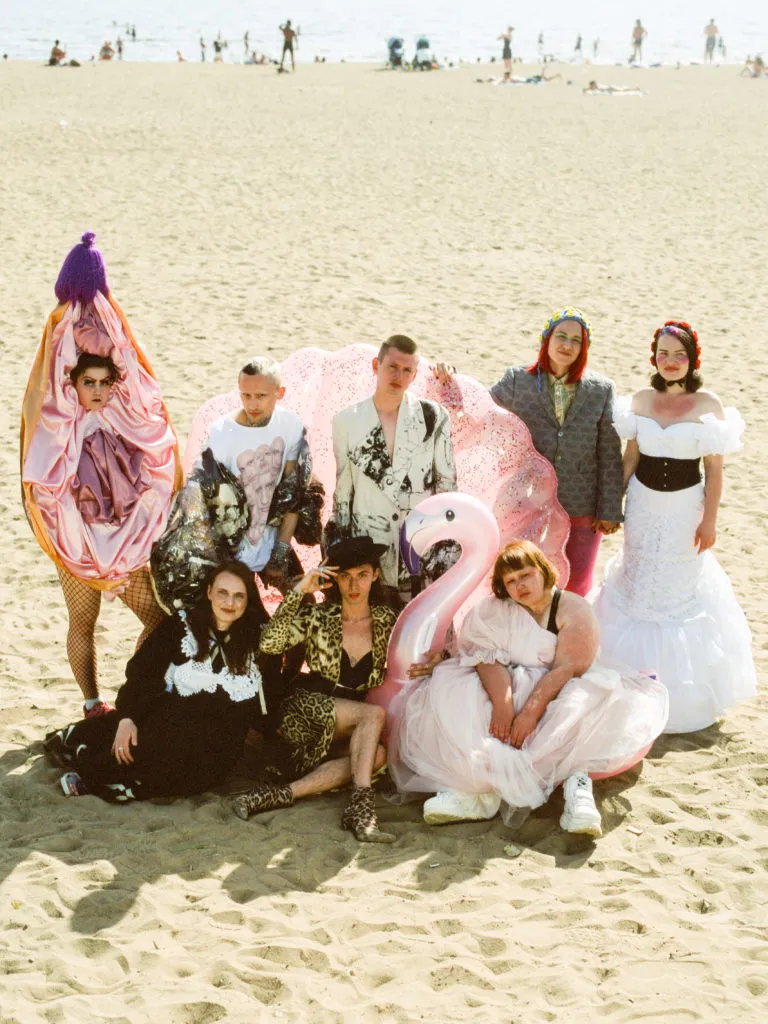
On the beach near St Petersburg. L-R: Nedos, Kate Messorosh, Dmitry, Roma Valero, Roman Gunt, Miliyollie, Masha and Masha, Mashino Hozyastvo. (Artem Emelianov)
O-Zine collaborates with The Calvert Journal
For this collaborative project with The Calvert Journal, which reports on contemporary culture from Russia, Eastern Europe, Central Asia and the Balkans for the English-speaking audience, the main aim was to explore the very idea of Russian queerness.
We wanted to avoid the depressive post-Soviet tropes, which have become a bit of a cliche recently
“We believe in the power of LGBTQ+ community in Russia and its bright future, so we wanted to avoid the depressive post-Soviet tropes, which have become a bit of a cliche recently. We offered our subversive take on Russian stereotypes. Bears, balalaykas, furs and onion domes for us are just as ridiculous as the stale heteronormative ideas stuck in the heads of the majority,” says photographer and filmmaker Artem Emelyanov, who was responsible for the visual part of the project.
Together with Kozachenko, they picked 18 queer creatives for a two-part shoot in Moscow and St Petersburg. Although LGBT+ activism and creativity in Russia has a long history, they wanted to focus on young people who haven’t had much media exposure and produce work that is particularly relevant now.
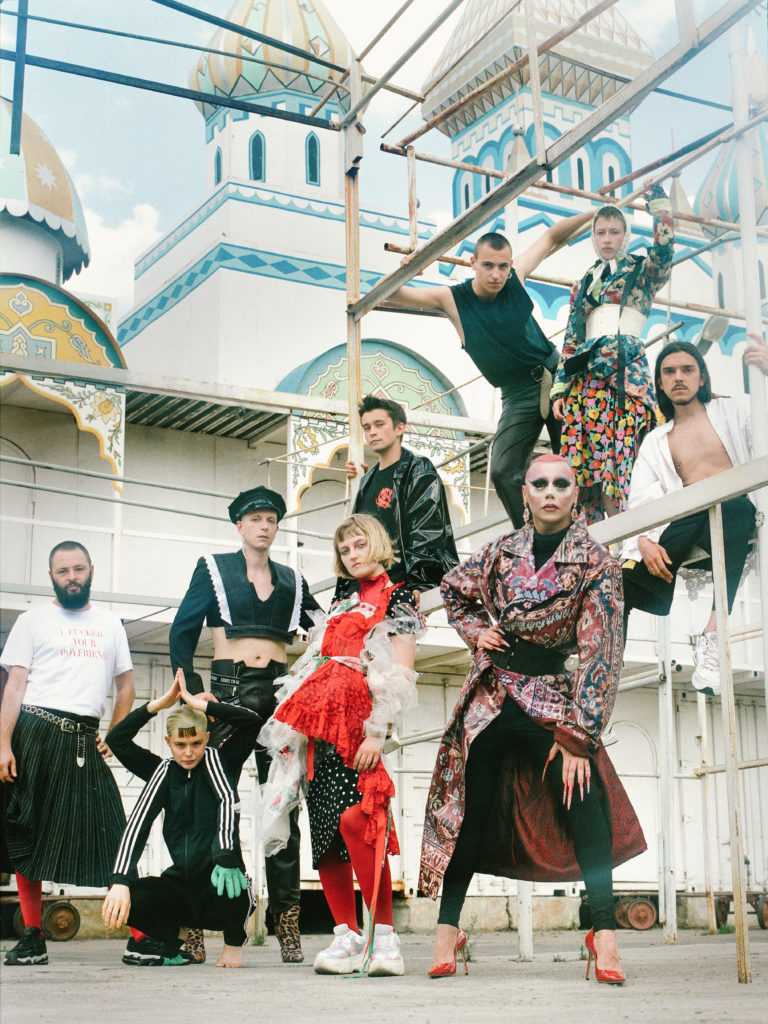
In Moscow. L-R: Nikita Egorov-Kirillov, Dagnini, Gleb Osipov, Dasha, Dimitri Shabalin, Lorina Rey, Sergei Nesterenko, Slava Rusova, Nikita Kalmykov. (Artem Emelianov)
The selection is as colourful and diverse as the community: chemist, engineer and trans activist Kate Messorosh; body-positivity activist and photographer Ollie Coxon; drag queen Lorina Rey; Nikita Egorov-Kirillov and Sergei Nesterenko who run the biggest LGBT+ rave Popoff Kitchen; artist Dagnini whose alter egos include a hybrid of a gopnik and a gargoyle; and activist and artist Nedos, who can be often seen in the costume of a vulva and describes herself as the empress of queer communism.
Rise of queer culture in Russia ‘offers hope’
Although a lot of the participants noted that it’s much harder to lead queer life outside of Moscow and St Petersburg, their openness still has the power to positively affect the whole community.
Rejection and alienation are part of the Russian queer experience nationwide, and is perhaps summed up best by artist and activist Slava Rusova: “The most difficult is the constant feeling that you’re being evicted from your own home. You were born here, grew up here, fell in love for the first time here — yet you’re constantly being shown the door. The rise of queer culture we’re all feeling now offers a lot of strength, hope and the feeling that you’re not alone.”
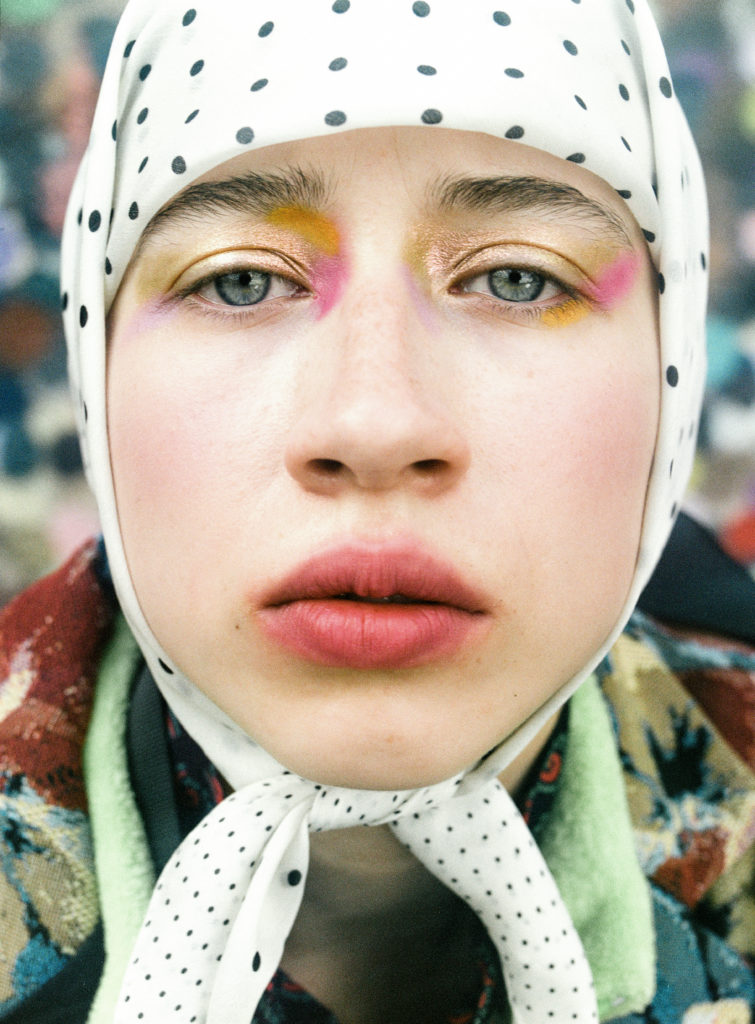
Slava Rusova, non-binary musician and activist. (Artem Emelianov)
“Looking back even three or four years, the rise of the queer community is obvious,” Nikita Egorov-Kirillov agrees. “And I’m proud that Popoff Kitchen is part of these changes. Throughout history, it’s quite common that visionaries, creators and fighters emerge when the pressure is at its highest.”
Visionaries, creators and fighters emerge when the pressure is at its highest
Although the community is growing, there is still a lot of work to be done.
“I would like to see the Russian queer community become more united and open. There is a lot of fragmentation and inconsistency in the views, even on fairly obvious topics like Pride and inclusivity. The LGBTQ+ community, like Russia itself, is slightly resentful of others, but also of themselves and people like them. I would like to see more positivity and mutual support,” says musician Angel Ulyanov.
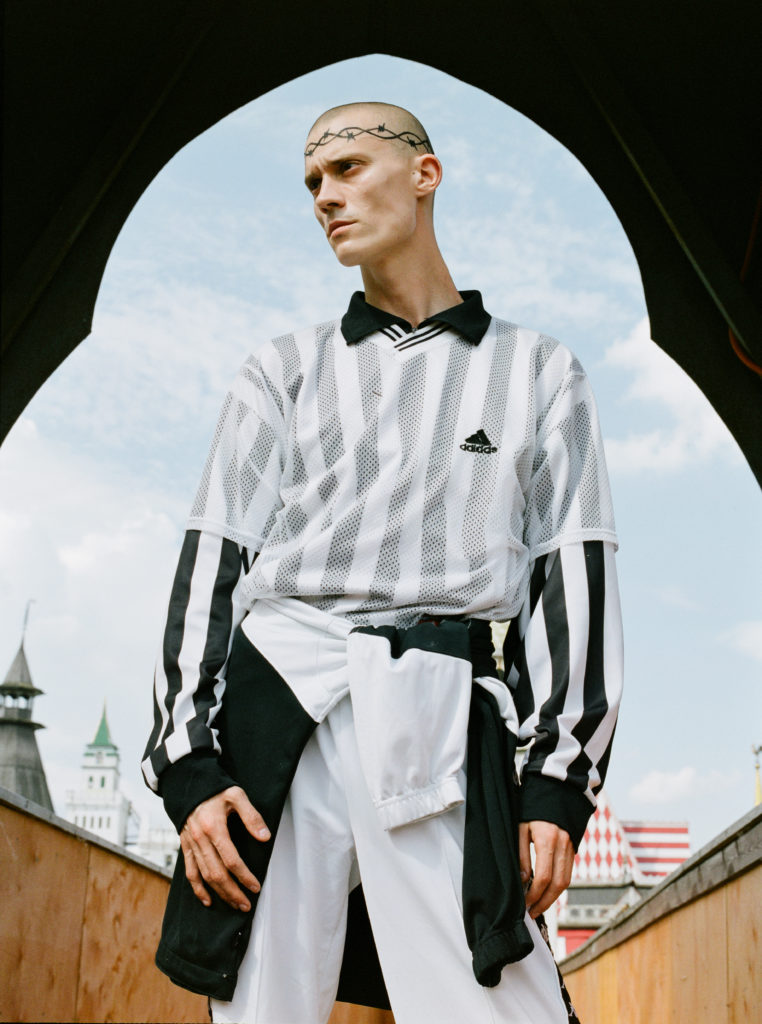
Angel Ulyanov, musician. (Artem Emelianov)
Visibility is key
Talking about their vision of the future, a lot of participants offered different aspirations: from Pride and equal marriage to simply living in a society more tolerant to others’ self-expression and sexuality.
But almost everyone agreed that the change starts right here, from them. “We want visibility and openness for the community, and I guess the best we can do is to try to be open and visible — to engage in activism as much as we can,” Masha and Masha, the founders of Mash Hoz, pointed out.
“What is to be done? Fight! Don’t be afraid to be yourself! Yes, in spite of all the archaic relics that surround you,” Nedos agreed. “Express yourself, cry out in your own voice, announce your existence. That’s how it happens.”
To see the full project about Russian queer culture visit The Calvert Journal.
Shoot credits:
Photographer: Artem Emelianov
Producer: Dmitry Kozachenko
Stylist: Roman Kyandzhaliev
Styling assistant: Olga Naydenova
Make up: Margarita Art, Poli Djo

